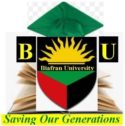Remembering…,
Fredrick Forsyth
and
Bruce Mayrock
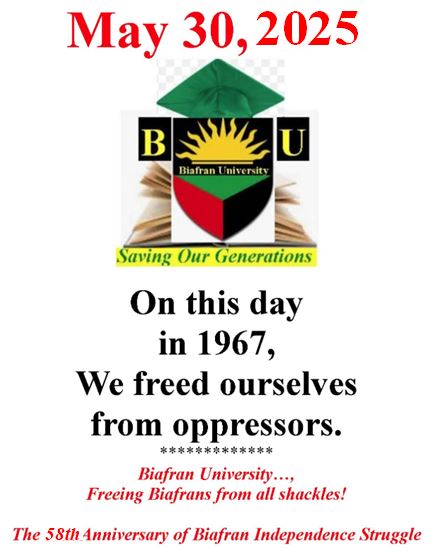
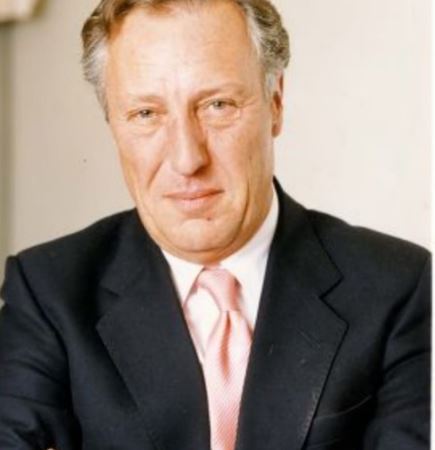
Every Igbo man must spend a minute today to honour Fredrick Forsyth, who has just passed away at 86 years.
He was a BBC journalist who resigned his job with the BBC because they wouldn’t allow him to cover the genocide going on in Igboland during the Civil War. He resigned and relocated to Biafra in 1968 and became the one western link pushing out information about the genocide against Ndigbo.
He had written several books on the Biafran story which includes Emeka, The Biafran story and others.
His book inspired the popular movie “Tears of the Sun” by Bruce Willis”.
To our great friend in need, Sir. Fredrick Forsyth, we give you a 21 gun 🔫 salute and wish you eternal rest.
LAA NAUDO EZI ENYI NDI IGBO.
Tribute from
Obidinma Aku.
To the great friend of Ndigbo
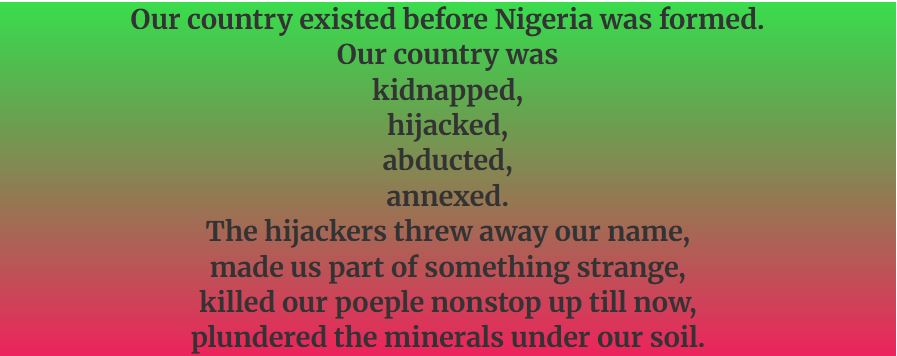

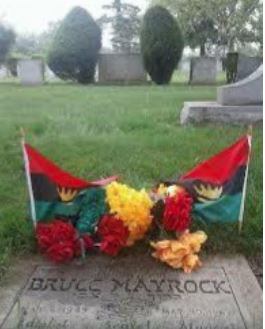
PROJECT MAYROCK: A PROMISE FULFILLED.
In the days following the stroke which would eventually take his life, one issue weighed heavily on Dim Chukwuemeka Odumegwu Ojukwu’s mind. That ‘issue’ was the immortalization of Bruce Mayrock, the 20 year old who set himself ablaze in front of the UN Building in New York on this day (29th Of May) in 1969 to draw attention to the plight of the Biafran people (a people whom he had never met, and whom he believed were at the brink of extermination, engaged in a desperate war for survival), who died in the early hours of 30th May, on the anniversary of the declaration of Biafra.
‘There is still time’, I had assured my anxious spouse.. ‘You will get through this, and then you will do it, as you planned’.
His response destabilized me. ‘I am a soldier..’ he said, looking straight into my eyes with all the equanimity of a man whose fate already lay before him;
‘the only modes of death I am conditioned to anticipate, happen to be death at the battlefield or by execution…I never expected to get this far. If I don’t make it, Do what you can…our people must never forget….’
Sadly, he did not survive….And steadily I embarked, stage by stage, upon Project Mayrock which, to the Glory of God, is nearing completion and slated for commissioning by the end of the year. It is our hope that the surviving brothers of Bruce Mayrock will attend the ceremony. The Mayrock is a three story edifice including a conference hall with Projectors ,an exhibition floor that will house artistic depictions, iconic photos and historic scenes of our 30 month long heroic battle for survival. Sculptures of Bruce Mayrock will adorn the landscape and memorial hall. Pupils from various schools will have an opportunity to visit and learn more about our struggle. The buildings and some of the artworks as shown here are still in process, however since this particular anniversary marks 50 years of the end of the Biafra War – a momentous milestone- I thought it timely to share this initiative. The only input you are required to make into this project is to pass on the story of this selfless sacrifice, and that of so many others to our struggle, to your children. ‘A nation which forgets it’s defenders will itself be forgotten’(Calvin Coolidge).
My appreciation goes to to the architects and Arcon builders, the sculptors, artists as well the curators working with me on this project, to my children for their research and assistance and very importantly, my profound thanks to Chief C. Martins Ndujekwu…We started this journey together.
🌈To our departed Leader Dim Chukwuemeka Odumegwu Ojukwu….,
On yet another anniversary of the self immolation and death of Bruce Mayrock, it is my honour to affirm to you – Ikemba Igbo nine, General Of the People’s Army, Odum n’eche Igbo…that We have not forgotten; and the promise is fulfilled . The memories of our Martyr Bruce and of all those who gave their lives that we may live…are enshrined in our hearts and minds. Generations yet unborn will be reminded of their sacrifice. The Mayrock Memorial Building stands as a monument and tribute to uncommon courage and heroism.
Brother Bruce…The people of Biafra, Land of the Rising Sun, today raise their trumpets in your honour. Again, We say THANK YOU. We will Never forget you.
Bianca Odumegwu Ojukwu
29 May 2025.
Below are all AI-generated
Who Is Bruce Mayrock?
Any Lessons To Be Learned?
Bruce Baruch Mayrock (May 6, 1949 – May 30, 1969) was a 20-year-old American student who became a symbol of humanitarian activism through his tragic act of self-immolation. On May 29, 1969, Mayrock set himself on fire on the lawn outside the United Nations Headquarters in New York City to protest the genocide occurring in Biafra during the Nigerian Civil War. He carried a sign reading, “You must stop the genocide—please save 9 million Biafrans,” expressing his outrage over the international community’s inaction .(Radio Biafra, igberetvnews.com)
A student at Columbia University’s School of General Studies and a part-time photographer for the Columbia Daily Spectator, Mayrock had previously studied at Hofstra University and the Jewish Theological Seminary of America. He was deeply moved by media coverage of the war, which depicted the suffering of Biafran civilians, particularly women and children. Despite writing letters to U.S. leaders urging action, he felt that his appeals were ignored, leading him to take this extreme measure to draw attention to the crisis .(EverybodyWiki)
Mayrock’s act garnered international attention, though it did not immediately lead to significant intervention in the conflict. He died from his injuries shortly after the incident, and is buried in Mount Ararat Cemetery in Farmingdale, New York. His sacrifice is commemorated annually by Biafran communities and human rights advocates as a poignant reminder of the power of individual action in the face of injustice.(EverybodyWiki)
Bruce Mayrock’s self-immolation in 1969 was a powerful protest against the Nigerian Civil War and the suffering in Biafra. Today, more than five decades later, the Biafran independence movement remains active, though its path has evolved and become more complex.
🇳🇬 The Current State of Biafra
The Indigenous People of Biafra (IPOB), the leading group advocating for Biafran independence, continues to push for a sovereign state. They have called for a United Nations-supervised referendum to allow the Biafran people to decide their future. IPOB maintains that it seeks a peaceful exit from Nigeria, emphasizing that it does not have a formal military but operates a vigilante group called the Eastern Security Network (ESN) to protect local communities from external threats. Premium TimesSahara Reporters+3Vanguard News+3Premium Times+3
Despite IPOB’s stated commitment to non-violence, there have been instances of violence linked to the movement. For example, in May 2024, an attack in Aba resulted in the deaths of at least 11 people, including five soldiers and six civilians. The perpetrators were reportedly members of the ESN, and the Nigerian military has vowed retaliation. Wikipedia
The Nigerian government has declared IPOB a terrorist organization and has engaged in military operations against separatist groups in the southeast. These actions have led to significant casualties and displacement in the region. Wikipedia+2Reuters+2Reuters+2AP News
🌍 International Efforts and Diaspora Involvement
The Biafran cause has garnered international attention, with diaspora communities playing a significant role. For instance, Simon Ekpa, a prominent Biafran separatist leader based in Finland, has been active in lobbying for Biafran independence in the United States. In 2024, he signed a $130,000 lobbying deal to advocate for the Biafran cause in Washington, D.C. allAfrica.com+1AP News+1
⚖️ Calls for Dialogue
IPOB has expressed a willingness to engage in dialogue with the Nigerian government regarding a referendum on Biafran independence. They argue that a peaceful resolution is preferable to further conflict and that their struggle is rooted in a desire for self-determination. AP News+2Premium Times+2Vanguard News+2
🕊️ Legacy and Ongoing Struggle
Bruce Mayrock’s sacrifice highlighted the international dimension of the Biafran struggle. Today, the movement continues to seek recognition and self-determination, though the path forward remains fraught with challenges. The situation in southeastern Nigeria remains tense, with ongoing violence and calls for a peaceful resolution to the conflict.
Bruce Mayrock’s life and tragic death offer several profound lessons, both moral and political. While his action was extreme, the values and motivations behind it continue to spark deep reflection:
The Moral Power of Conscience
Mayrock was moved not by personal gain or proximity to the Biafran crisis, but by a moral conviction. His empathy transcended borders and race.
Lesson: A strong moral compass can drive people to act for justice even when they are not directly affected.
The Tragic Cost of Desperation in Advocacy
Frustrated by the silence of governments and institutions, Mayrock chose self-immolation as a final act to draw attention.
Lesson: When traditional forms of protest are ignored, some individuals feel forced into drastic action—highlighting the need for responsive and humane leadership.
The Importance of Global Awareness
Mayrock was deeply affected by international suffering, despite being a college student in New York. He sought to educate himself about global issues and act accordingly.
Lesson: Young people can and should engage with global injustice—not just national or local issues.
The Limits and Power of Symbolic Acts
While Mayrock’s act shocked many, it did not result in immediate political change. Yet, it endures as a powerful symbol remembered by those advocating for justice.
Lesson: Symbolic actions may not yield instant results but can inspire future generations and keep important issues alive in public memory.
The Value—and Danger—of Self-Sacrifice
Mayrock believed so strongly in his cause that he gave his life for it. This prompts difficult questions about martyrdom, activism, and the line between courage and tragedy.
Lesson: Passion must be paired with strategy and sustainability in advocacy—true change often requires long-term engagement, not just sacrifice.
The Nigerian and Biafran (separatist/IPOB) sides both hold deeply entrenched views rooted in history, identity, injustice, and trauma. Given the enduring volatility and loss of life, any advice must prioritize human dignity, long-term peace, and mutual understanding. Here’s a balanced set of recommendations for each:
 To the Nigerian Government and Leadership:
To the Nigerian Government and Leadership:
Acknowledge Historical Wounds Openly
Shift From Force to Dialogue
Decentralize Power and Address Marginalization
Respect Civil Liberties
 To Biafran Leaders and Activists (e.g. IPOB, Diaspora groups):
To Biafran Leaders and Activists (e.g. IPOB, Diaspora groups):
Commit to Nonviolence
Present a Clear Political Agenda
Protect Civilians
Engage Global Diplomacy Responsibly
 Shared Responsibility:
Shared Responsibility:
Prioritize Peace Over Victory
Center the People, Not the Politics
The average citizen in southeastern Nigeria wants safety, dignity, and opportunity.
Advice: Put the human being—Igbo, Hausa, Yoruba, or otherwise—at the center of policy and protest.
